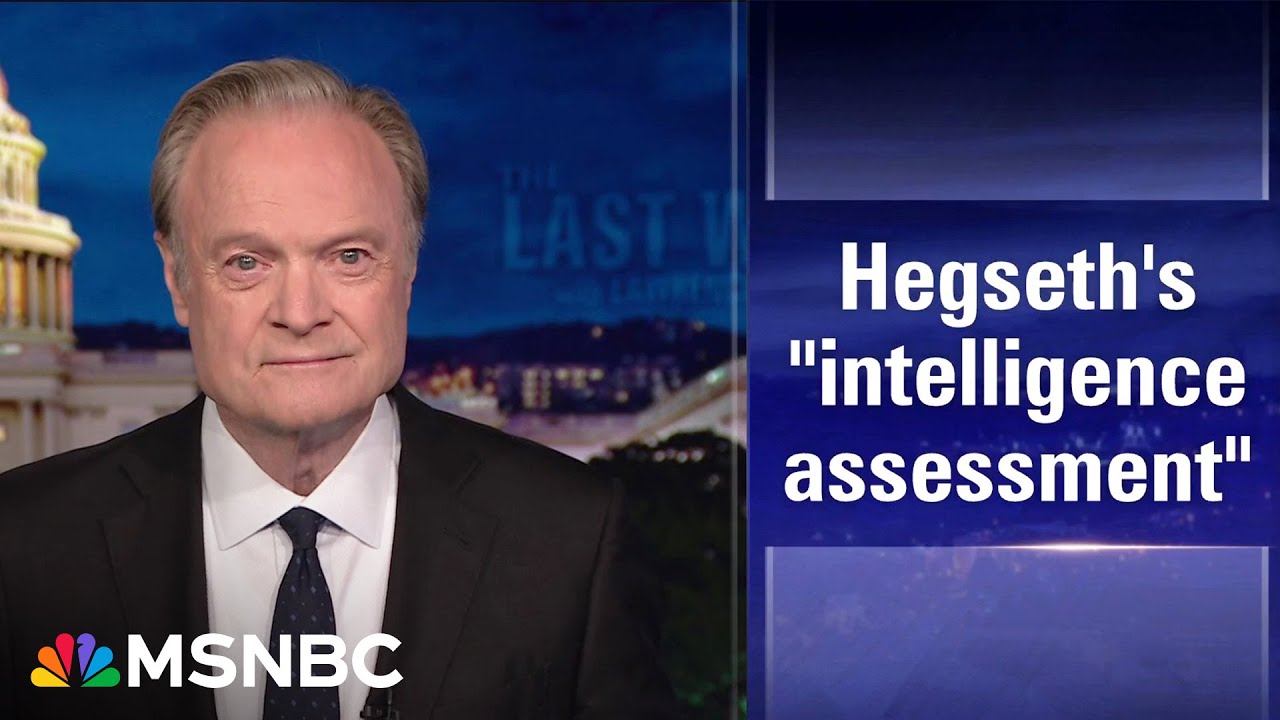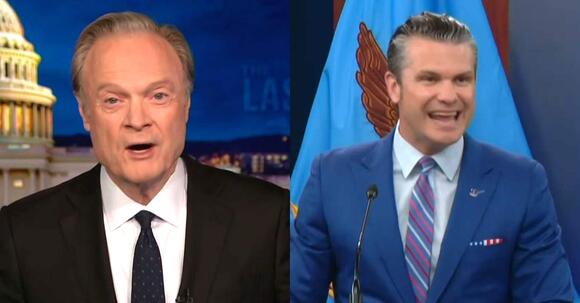MSNBC Host Torches Trump Defense Secretary Over His ‘Stupidest Public Lie’

In a blistering critique, Lawrence O’Donnell, a prominent MSNBC host, turned his attention on June 27, 2025, to Defense Secretary Pete Hegseth, specifically targeting his claims about recent U.S. military actions in Iran. Hegseth had characterized airstrikes on Iranian nuclear facilities as “the most complex and secretive military operation in history.” O’Donnell was quick to label this assertion as a gross exaggeration, branding it the “stupidest public lie” ever made by a Secretary of Defense.
Assessing the Complexity of Military Operations

O’Donnell’s rebuke centered around a pointed comparison between the airstrikes on Iran and historic military endeavors, particularly the D-Day invasion during World War II. He articulated that the D-Day operation represented a far greater level of complexity and secrecy, emphasizing that President Franklin D. Roosevelt had never hinted at the looming invasion until it was executed. This omission pointed to the vital strategic secrecy that underpins significant military operations.
O’Donnell challenged Hegseth’s narrative by arguing that the airstrikes were hardly a mystery, given President Trump’s previous discussions about potential military actions in the region. Unlike the orchestrated and stealthy strategy that epitomized D-Day’s planning—conducted over multiple years and involving extensive double-dealing, diversionary tactics, and coordination—O’Donnell insisted that the attacks on Iran’s nuclear sites lacked this depth of strategic involvement.
Emotional Reactions and Public Backlash

During a press conference where Hegseth defended the airstrikes, he exhibited emotional responses that showcased his unwavering loyalty to former President Trump. Hegseth countered media critiques, which described the operation as less than successful, merely postponing Iran’s nuclear ambitions by a few months rather than obliterating them entirely. O’Donnell highlighted how this failure to meet strategic objectives made Hegseth’s claims even more questionable.
The backlash against Hegseth’s statements extended onto social media, where users ridiculed the comparisons made by the Defense Secretary. Many commentators agreed with O’Donnell’s perspective, emphasizing the absurdity of likening Hegseth’s claims about the Iran airstrikes to monumental military achievements like the D-Day invasion. The chasm between Hegseth’s assertions and historical reality drew significant attention and criticism.
Understanding Military Achievement and Historical Context
O’Donnell’s sharp critique touched upon a more profound issue: the simplification of military achievements in the context of a modern administration. He argued for a more nuanced understanding of what constitutes a significant military operation, one that respects the complexities involved. The stakes in military operations require recognition of the multifaceted planning, execution, and unintended consequences that often accompany these actions.
The contrast between the D-Day invasion and the recent airstrikes against Iran lies not only in the scale and impact but also in the integrity of the leadership overseeing these operations. Hegseth’s portrayal of the airstrikes as an unparalleled military endeavor raised flags for O’Donnell, who urged viewers to acknowledge the real achievements in military history without resorting to hyperbole.
In wrapping up his commentary, O’Donnell called for a more analytical and honest discourse regarding military strategies and the claims associated with them. He believes it’s essential to recognize genuine military sophistication, as opposed to sweeping statements meant to invoke grandeur where it does not exist. This level of scrutiny serves to hold leaders accountable for their words and actions while fostering a more educated public debate on military operations.
Conclusion
O’Donnell’s critique of Hegseth underlines a crucial point in the discussion of military affairs: honesty and accuracy matter. The public deserves reliable information regarding the United States’ military actions and their implications. As discourse continues about such essential topics, it is vital for citizens to engage critically with the narratives presented by leaders and the media alike. To better understand these complex issues and take action, consider following reliable news sources, joining discussions, and advocating for transparency in our military and political leadership.


